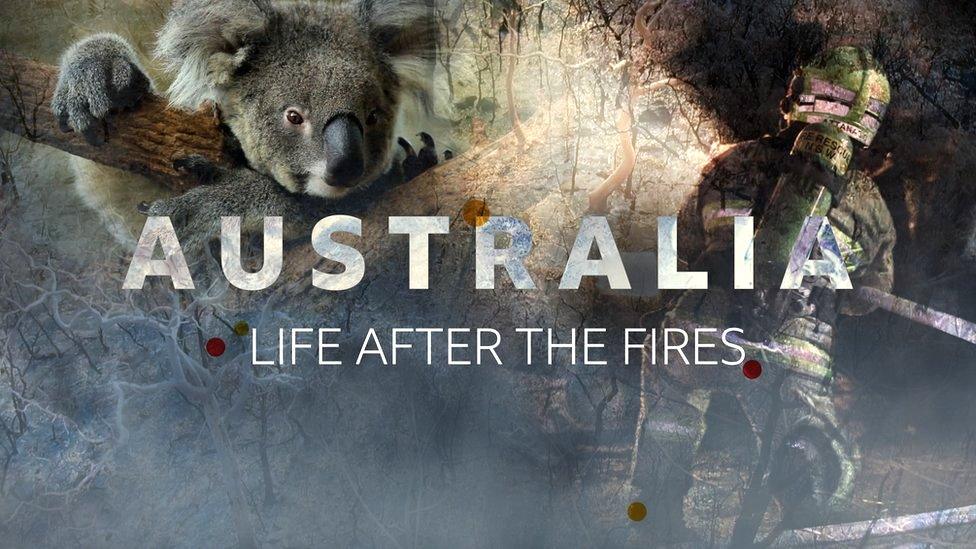Climate change: World leaders meeting this weekend
- Published
- comments
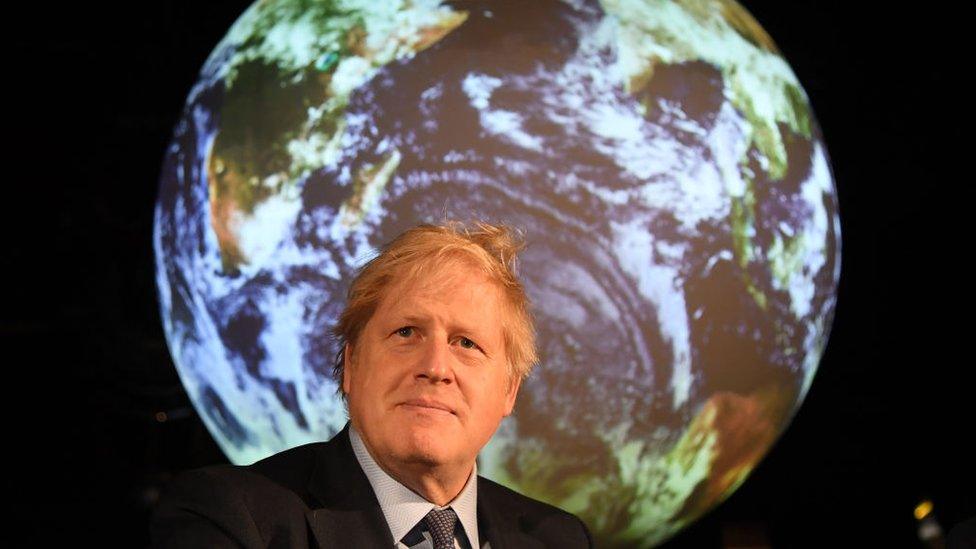
A virtual meeting of world leaders brought together to discuss climate change is being hosted by Britain, France and the United Nations (UN) on Saturday.
The meeting, called the Climate Ambition Summit is happening five years on from the Paris Agreement when several countries signed up to cut harmful gas emission and try to keep global temperatures from rising more than 1.5C (since pre-industrial times).
Scientists have warned that if Earth's temperatures rises by 2C or more, then it will cause a climate catastrophe resulting in flooding for many coastal areas.
The virtual meeting is happening after UN climate talks called COP26, which was scheduled to happen in Glasgow in November, got pushed back by a year because of coronavirus.
The UK's Prime Minister, Boris Johnson, is expected to remind world leaders of their responsibility to tackling climate change while encouraging other countries to take more action.
WATCH: Why is climate change a problem?
How is the world doing when it comes to cutting emissions?
The UK
Each country that signed the Paris climate agreement had to provide the UN with a climate action plan explaining what steps they are taking to cut carbon emissions.
Since 2008, the UK government has had to set five-year greenhouse gas targets by law.
While it was part of the EU, the UK's target for this year was to have cut emissions by 16% from where they were at in 2005. That target was easily achieved and harmful greenhouse gasses have been reduced by 45% in Britain over the last 30 years.
Greenhouse gases like carbon dioxide (CO2) trap heat in the atmosphere, acting like a blanket and causing the planet to become warmer.
As a result of leaving the EU, going forward the UK has to submit an individual plan to the UN.
Prime Minister Boris Johnson says the UK's aim is to now cut carbon emissions by at least 68% in the next 10 years. By 2050, The UK is aiming to bring all greenhouse gas emissions to 'net zero'.
That means harmful emissions from homes, transport, farming and industry will have to be stopped or - in areas where it's difficult to stop completely - balanced by other measures like planting trees that suck carbon dioxide (CO2) out of the atmosphere.
"This is a global effort, which is why the UK is urging world leaders to bring forward their own ambitious plans to cut emissions and set net zero targets," the Prime Minister said.
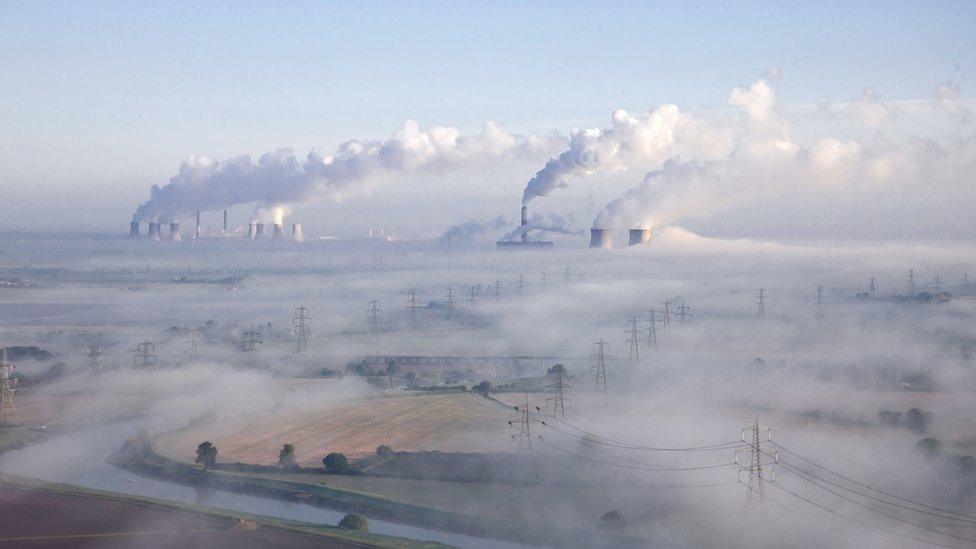
Not everyone is convinced that a realistic plan is in place to achieve the government's targets yet.
One of the UK's leading climate scientists, Prof Sir Brian Hoskins, told the BBC: "Mr Johnson's target is ambitious - but we need action to back it up, right now."
He added that the Chancellor Rishi Sunak "clearly hasn't got the message" after recently committing £127bn to the HS2 rail link as well as new roads - which will both increase green house gas emissions.
Under the UK's plans around 87% of electricity would need to come from low carbon sources by the end of the 2020s, up from over 50% now.
Almost half the cars on the road would need to be electric, up from around 6% that use electricity at the moment.
The EU
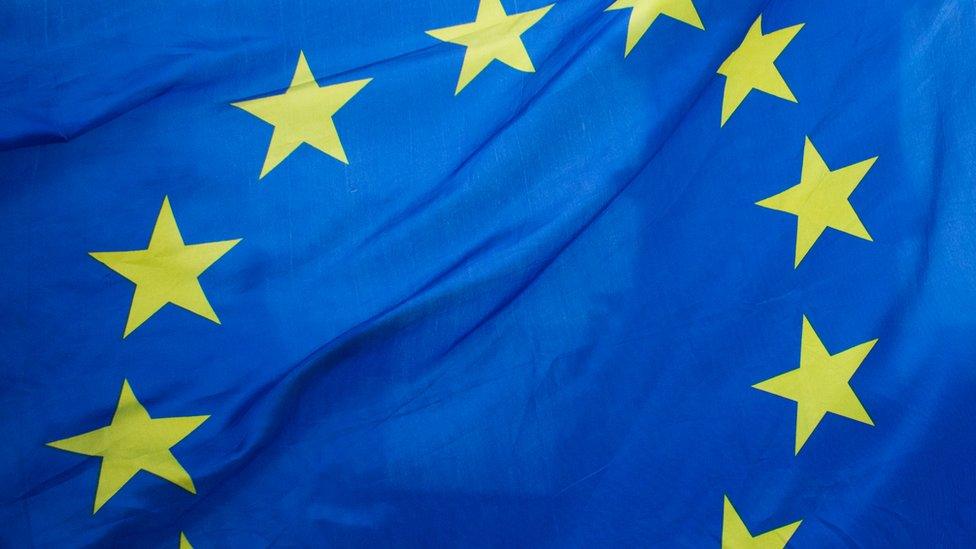
The European Union contributed to around 9% of the global share of carbon emissions in 2019, and all together the 27 countries combined are the world's third largest polluter.
EU leaders set a goal of cutting greenhouse gas emissions by 20% by 2020. But by 2018, they were ahead of schedule and had cut gases by 23.2%.
Having over-achieved, critics said that the original targets had been set far too low in the first place.
EU leaders have now agreed on a more ambitious goal for cutting greenhouse gases - reducing them by 55% by 2030.
EU Council President Charles Michel hailed the agreement, tweeting "Europe is the leader in the fight against climate change".
Environmental campaign groups say the 55% target does not go far enough.
Sebastian Mang of Greenpeace said "the evidence shows that this deal is only a small improvement on the emission cuts the EU is already expected to achieve".
Australia
Newsround Special: Australia - Life after the fires
Australia matters because not only is it one of the biggest sources of fossil fuels, which are bad for the environment, but it is also a country that is very vulnerable to the impacts of climate change.
The country is now the world's largest exporter of coal and gas, which is responsible for 3.6% of global emissions.
Over the past five years, Australia has been criticised for not doing enough and missing climate targets. It's also been accused of moving away from the targets set out in the Paris agreement.
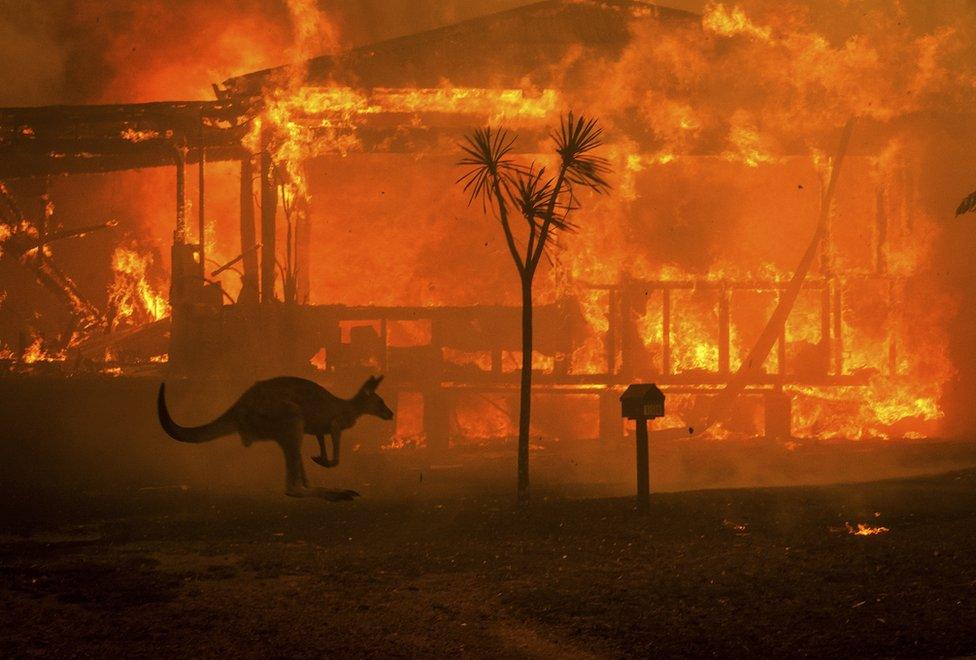
Recently, the Prime minister Scott Morrison was criticised by other politicians for downplaying the role of climate change after devastating wildfires in the country. He said although some mistakes were made in the handling of the bushfire crisis the country was "on track" to cut emissions.
Dr Bill Hare, who's part of the Climate Action Tracker group has rated Australia's plans to tackle climate change as "insufficient".
"It is really an embarrassment actually," he said.
Dr Alison Doig, gives environmental advice and is part of the Energy and Climate Intelligence Unit. She explained why Australia might start trying harder in the fight against climate change.
"I think if Trump had won the [US] election then Australia would see themselves as part of a gang with Brazil and Saudi Arabia and a few others," she said.
"But with Biden coming into office, they are in a position that's becoming more outcast."
One of the key things President-elect Joe Biden put forward during his run for office was re-joining the Paris Agreement.
President Donald Trump pulled out of the Paris Agreement in 2017, because he believed it was harmful to American workers who work in the coal and oil industries.
China
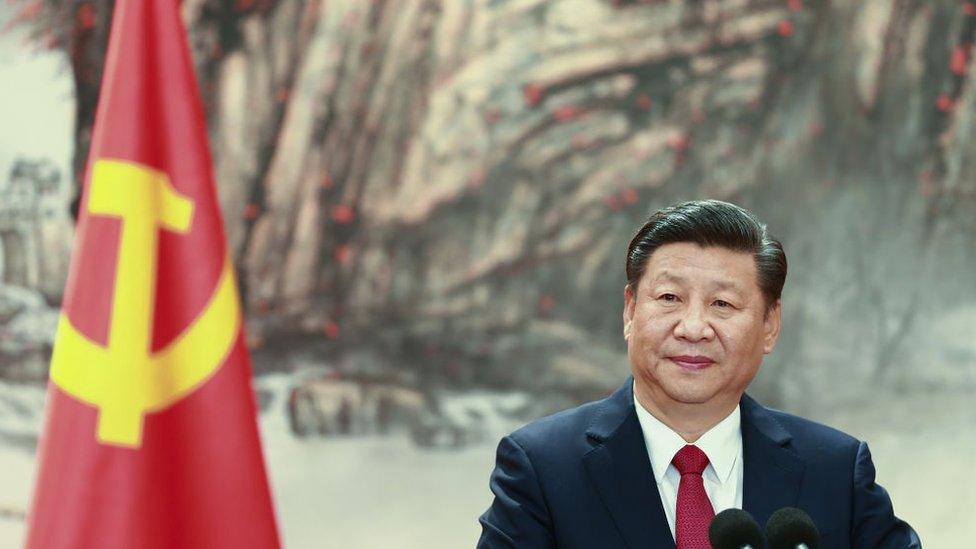
Chinese President Xi Jinping has announced climate change targets for the country
China is really important in solving the global problem with climate change, because it is the world's biggest contributor to carbon dioxide (CO2) emissions.
China's economy has expanded massively over the last 20 years, using coal as their main energy source, their emissions have overtaken the US and now contribute to around 28% of the global CO2 output.
However, in September 2020, China's President Xi Jinping made a commitment to climate change, telling the UN that his country plans to be carbon neural by 2060.
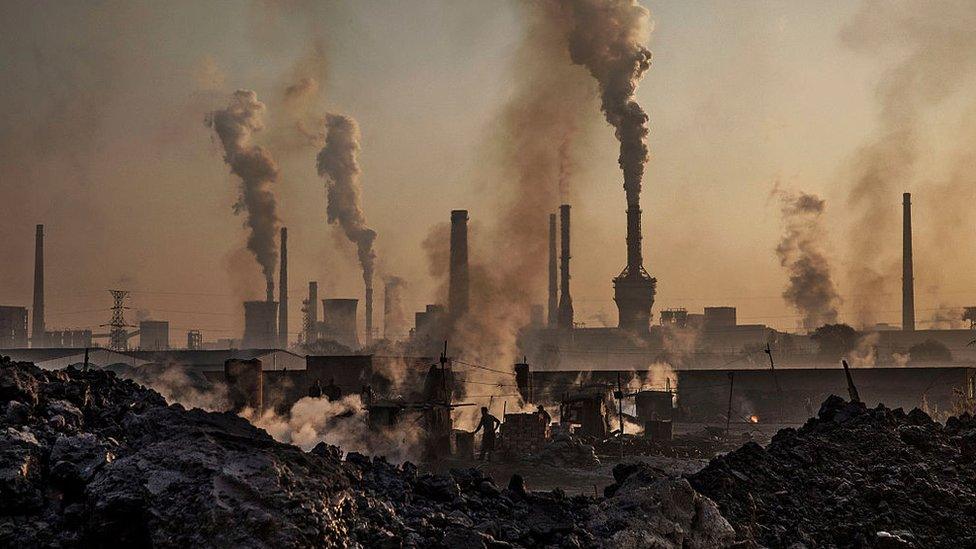
When signing the Paris Agreement, China promised to cut carbon emissions by 60-65% by 2030 and remains on course to meet those targets.
Dr Niklas Höhne from the group Climate Action Tracker says China "only proposed something that they were very sure that they could meet."
"It was clear that at, the moment when they proposed their 2030 target, that they would over-achieve it. And that doesn't mean that that it's a bad target, per se, but that's their way of approaching it," he said.
China is a huge nation - it has more than 1 billion people living there and is also the second largest economy on Earth. Despite that, the country still views itself as developing and coal and fossil fuels are still a big part of that at the moment.
So it remains to be seen if a shift to renewable energy sources, away from coal, is really going to happen.
"I assume if China proposes the target of carbon neutrality by 2060, it's already quite sure that they can achieve it," says Dr Höhne.
"And that makes me a bit hopeful that they can indeed make that transition."
- Published4 December 2020
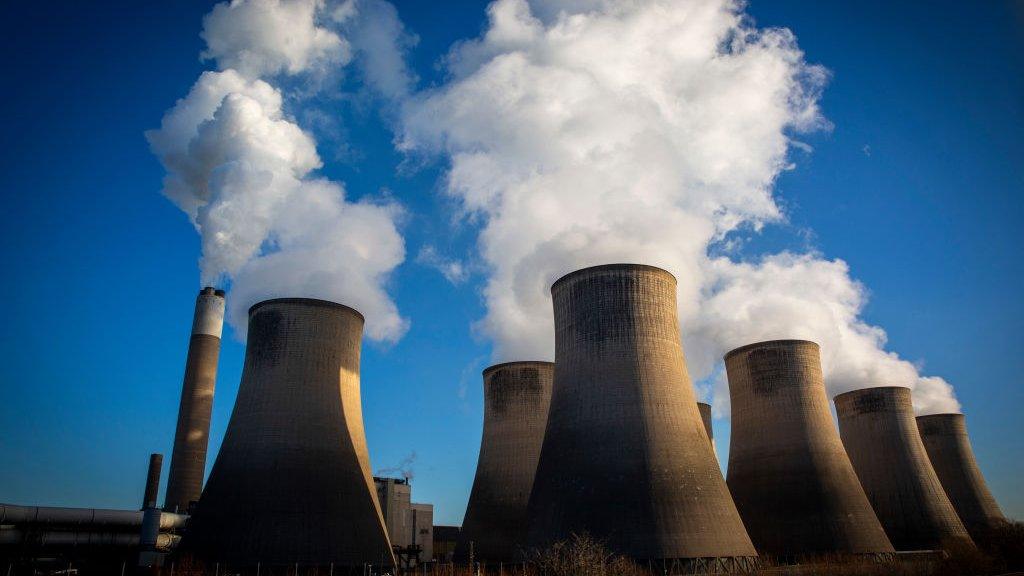
- Published18 November 2020

- Published9 December 2020

- Published28 April 2020
